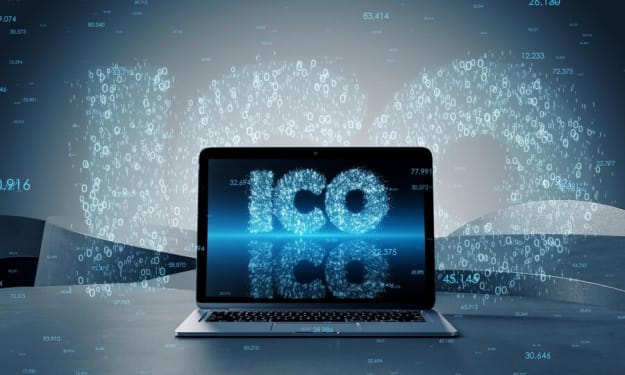Token Development Platform Services: Revolutionizing the Future of Cryptocurrencies
Discover the potential of token development platforms and their crucial role in the blockchain ecosystem.

The rapid rise of cryptocurrencies has transformed the financial landscape, offering new opportunities and challenges for investors, businesses, and individuals alike. Among the innovations brought about by the advent of blockchain technology, token development platforms stand at the forefront, serving as the driving force behind the creation and management of digital tokens. These platforms offer a seamless and efficient approach to design, deploy, and manage various tokens, each serving a unique purpose. In this article, we will delve into the world of token development platform services, their functionalities, and the impact they have on the future of cryptocurrencies.
What Are Token Development Platforms?
Token development platforms are specialized software solutions that facilitate the creation, issuance, and management of digital tokens on blockchain networks. These platforms serve as a bridge between businesses or individuals seeking to tokenize their assets or launch cryptocurrencies and the underlying blockchain technology that makes it possible. With the help of these platforms, companies can tokenize a wide array of assets, including real estate, commodities, equity, or even intellectual property.
The Significance of Tokenization:
Tokenization plays a pivotal role in the digital economy, as it enables the representation of real-world assets and resources in a digital form. By converting tangible and intangible assets into tokens, liquidity and accessibility are greatly enhanced. Tokenization also democratizes investment opportunities, enabling fractional ownership and opening up previously illiquid markets to a broader audience.
How Token Development Platforms Work?
Token development platforms provide user-friendly interfaces and smart contract templates that simplify the token creation process. Users can define the token's properties, such as its name, supply, divisibility, and distribution. Once the token parameters are set, the platform generates a smart contract that automates the token's behavior, including issuance, transfers, and compliance with regulatory requirements.
Key Features and Benefits:
Token development platforms offer a range of features and benefits, making them indispensable tools in the world of blockchain and cryptocurrencies. Some of the key features include multi-chain support, robust security measures, scalability, and integration with decentralized finance (DeFi) protocols. These platforms provide businesses with the flexibility to customize tokens to suit their specific needs and objectives.
Selecting the Right Token Development Platform:
Choosing the right token development platform is crucial for a successful tokenization journey. Factors to consider include platform security, scalability, community support, cost-effectiveness, and regulatory compliance. A well-chosen platform can significantly impact the token's performance and its ability to thrive in the market.
The Role of Token Development Platforms in Crowdfunding:
Token development platforms have reshaped the landscape of crowdfunding by introducing Initial Coin Offerings (ICOs) and Security Token Offerings (STOs). These fundraising methods allow businesses and startups to secure capital from a global pool of investors. Through tokenized assets, investors gain fractional ownership and can actively participate in the project's growth.
Security Considerations:
Security is paramount in the blockchain world, and token development platforms employ various measures to safeguard users' funds and data. Encrypted wallets, two-factor authentication, and audited smart contracts are some of the security features implemented to protect against potential vulnerabilities and attacks.
Interoperability and Standards:
With multiple blockchain networks and protocols in existence, interoperability becomes essential for seamless asset transfers. Token development platforms adhere to established standards, such as ERC-20 and ERC-721, to ensure compatibility and easy integration with various wallets and exchanges.
Token Economics and Governance:
Token economics refers to the study of a token's supply, demand, and distribution mechanisms. Token development platforms allow businesses to design sustainable token economies that incentivize users and support the growth of their ecosystems. Governance models are also established to enable community-driven decision-making and ensure a decentralized approach to platform management.
FAQs:
Q1: Can anyone create a token using these platforms?
A1: Yes, token development platforms are designed to be user-friendly, allowing individuals and businesses to create their tokens without extensive technical knowledge.
Q2: What are the common use cases for tokenization?
A2: Tokenization finds application in various industries, including real estate, gaming, supply chain, finance, and art, among others.
Q3: Are token development platforms secure?
A3: Yes, these platforms implement robust security measures to protect users' assets and data from potential threats.
Q4: Can tokens from different platforms be used interchangeably?
A4: It depends on the token's standard and the blockchain network. Tokens following the same standards can usually be used interchangeably.
Q5: How do token development platforms contribute to decentralization?
A5: Token development platforms empower users to create and manage decentralized assets, fostering a more inclusive and democratized financial landscape.
Q6: Are tokenized assets subject to regulatory oversight?
A6: Yes, depending on the jurisdiction and the nature of the token, certain regulatory compliance may be required.
Q7: Can tokens be upgraded or modified after creation?
A7: Some token development platforms offer upgradeable smart contracts, allowing token properties to be modified through governance processes.
Q8: What role do smart contracts play in token development platforms?
A8: Smart contracts automate token behavior and ensure transparent and immutable execution of token-related actions.
Q9: Is there a limit to the number of tokens that can be created?
A9: The number of tokens that can be created depends on the platform's technical specifications and the blockchain's capabilities.
Q10: How do token development platforms foster liquidity?
A10: By tokenizing assets, token development platforms make it easier for assets to be traded and exchanged in the market, enhancing overall liquidity.
Conclusion:
Token development platform services have emerged as the backbone of the rapidly evolving world of cryptocurrencies. By enabling the creation and management of digital assets, these platforms have paved the way for innovation and accessibility in the financial realm. The power of tokenization to unlock value and democratize investment opportunities is reshaping traditional finance and holds the potential to revolutionize various industries in the years to come. As the blockchain space continues to evolve, token development platforms will remain instrumental in shaping the future of digital economies.
About the Creator
Camilla Burns
I’m a Digital Marketer from Appstar. I do branding, lead generation & generate traffic for the website. Also working on all social media platforms, google ads to drive more traffic and generate leads.






Comments
There are no comments for this story
Be the first to respond and start the conversation.